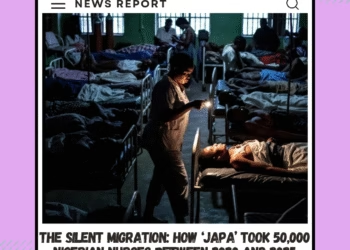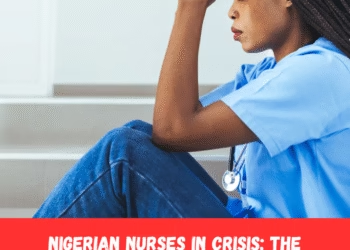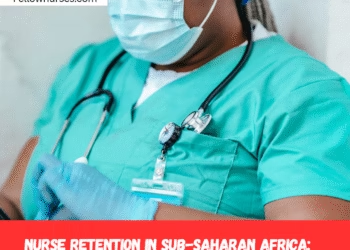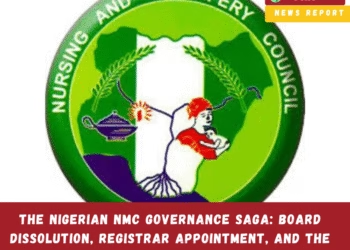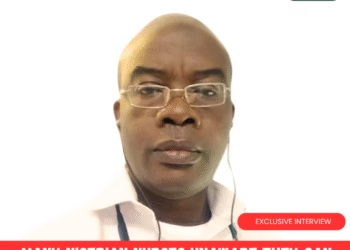FNA Exclusive Report, 09 August, 2025.
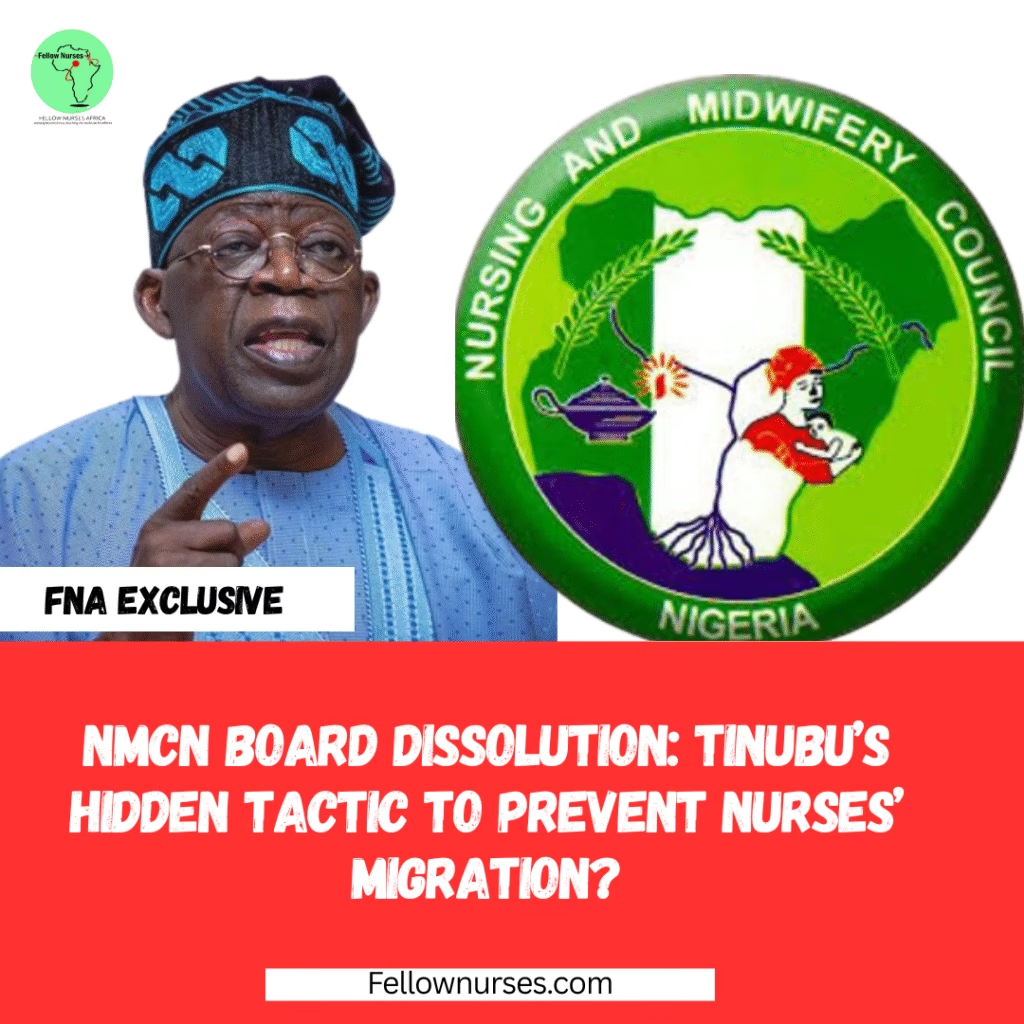
NMCN Board Dissolution: Tinubu’s Hidden Tactic to Prevent Nigerian Nurses’ Migration?
By Fellow Nurses Africa Correspondent
Abuja, Nigeria – August 9, 2025
Introduction: A Crisis Stalling Nurses’ Dreams
The Nursing and Midwifery Council of Nigeria (NMCN) is embroiled in a deepening crisis, with thousands of Nigerian nurses unable to secure certificates of registration or verification due to the prolonged absence of a governing board. Dissolved by President Bola Ahmed Tinubu in June 2023, the NMCN board, formerly chaired by Dr. Abosede Bola Ofi, remains un-reconstituted as of August 9, 2025, leaving nurses stranded in their pursuit of higher education, scholarships, and overseas jobs. This exclusive Fellow Nurses Africa report investigates allegations that the board’s dissolution is a deliberate strategy by the Tinubu administration to halt Nigeria’s nursing brain drain, echoing a 2024 verification saga that sparked lawsuits.
The NMCN Board Dissolution: A Governance Void
On June 16, 2023, President Tinubu dissolved the governing boards of all federal parastatals, including the NMCN, as announced by the Office of the Secretary to the Government of the Federation. The directive required chief executive officers, such as the NMCN Registrar, to refer board-related matters to the President via the Federal Ministry of Health until new boards are appointed. Over two years later, the NMCN board remains un-reconstituted, creating a governance vacuum that has disrupted critical regulatory functions.
The NMCN, established under Act Cap. No143 Laws of the Federation of Nigeria, 2004, oversees nursing and midwifery education and practice. Its governing board, led by a Chairman, provides strategic oversight, approves policies, and ensures professional standards. Nurses interviewed by Fellow Nurses Africa claim the board’s absence has stalled certificate issuance, with some alleging that board signatures are required for certificates to be released. “I’ve visited the NMCN office in Abuja three times this year, and I’m told my certificate is delayed because there’s no board to approve it,” a nurse from Lagos shared anonymously, citing fears of professional backlash.
Several reports highlight ongoing appeals for board reconstitution, underscoring the persistent governance saga and urgent calls for change.
Certificate Delays: A Barrier to Global Opportunities
The NMCN’s Registration Unit issues certificates of registration, essential for nurses to practice legally, pursue advanced degrees, secure scholarships, or apply for international jobs. However, the board’s absence has reportedly halted these processes, leaving nurses in a state of uncertainty.
Nurses shared heart-wrenching stories with Fellow Nurses Africa. A nurse from Enugu, seeking verification for a UK scholarship, said, “My application is stalled because I can’t get my certificate. This delay could cost me a life-changing opportunity.” Another from Port Harcourt, aiming for a job in Canada, added, “I’ve paid N68,875 for verification, but without a board, my documents are stuck. My employer abroad is losing patience.”
X posts from August 2, 2025, amplify these concerns, alleging that the lack of a board has delayed certificate issuance, possibly due to required board approvals. While NMCN guidelines (https://www.nmcn.gov.ng) do not explicitly mandate board signatures for certificates, the governance vacuum may be slowing administrative processes, as suggested by a post noting the government’s agreement to reconstitute the board to resolve such issues.
Echoes of the 2024 Verification Saga
The current crisis mirrors a 2024 controversy when the NMCN’s stringent verification guidelines triggered protests and legal action. On February 7, 2024, a circular signed by then-Registrar Dr. Faruk Umar Abubakar required nurses seeking foreign verification to have two years of post-qualification experience, an active license with six months’ validity, and letters of good standing from employers and training institutions. The process was extended to six months, prompting accusations of deliberate obstruction.
Supported by the National Association of Nigeria Nurses and Midwives (NANNM), nurses protested, arguing the guidelines violated their right to seek better opportunities abroad. In March 2024, eight nurses filed a lawsuit against the NMCN, the Minister of Health, and others at the National Industrial Court in Abuja, seeking to halt the guidelines. The Nursing Group Admin (NGA), representing 153 nurses globally, also challenged the NMCN, citing workplace exploitation. The verification portal’s closure from December 2023 to September 2024 stalled applications, with foreign boards like the Texas Board of Nursing rejecting Nigerian nurses due to unprocessed verifications.
Dr. Olufunmilayo Ogunsanya, a UK-based Nigerian doctor, called the closure “professional imprisonment” while Fisayo Soyombo labeled the guidelines “modern-day slavery.” The Lagos State NANNM demanded the guidelines’ reversal and board reconstitution, linking governance issues to the crisis.
A Deliberate Strategy to Curb Migration?
With over 42,000 nurses leaving Nigeria since 2021 for better pay and conditions abroad, many believe the board’s dissolution is a calculated move to stem this brain drain. Nurses earn as little as N25,000–N50,000 monthly in Nigeria, facing high workloads and poor facilities, driving migration to countries like the UK, Canada, and the US. The Tinubu administration’s failure to reconstitute the NMCN board has fueled speculation of a backdoor tactic to retain nurses.
“The government knows we’re leaving because of poor conditions,” a nurse from Enugu told Fellow Nurses Africa anonymously. “Dissolving the board and delaying its reconstitution feels like a way to trap us here without addressing our grievances.” Another nurse from Abuja added, “They’re making it impossible to get verified or certified, but they’re not improving salaries or hospitals. It’s unfair.”
This sentiment echoes the 2024 verification controversy, where Dr. Craze called the guidelines a “deliberate move to reduce migration.” The absence of a board has also raised concerns about other governance issues, such as the hurried appointment of Alhaji Ndagi Alhassan as substantive Registrar on May 19, 2025, without board approval—a process nurses argue lacks transparency.
Governance Gaps and Administrative Chaos
The board’s absence has sidelined critical functions, including policy approvals and disciplinary measures. Nurses told Fellow Nurses Africa that decisions requiring board input are either delayed or rushed without proper oversight. “The Registrar’s appointment should have been vetted by the board,” a nurse from Kaduna said. “Without it, we’re seeing chaos in how things are handled.”
The NMCN’s online portal (https://portal.nmcn.gov.ng), used for registration and verification, has faced technical issues, compounding delays. Nurses report incomplete documentation or bureaucratic hurdles, further exacerbated by the lack of board-driven policy resolutions. Ongoing appeals for board reconstitution, as noted in a July 10, 2025, media reports, highlight the persistent governance saga.
A Call for Urgent Action
The crisis prompted NANNM’s nationwide strike on July 29, 2025, demanding better welfare, fair allowances, and board reconstitution. On August 1, 2025, Health Minister Prof. Ali Pate met with NANNM, with the government agreeing to address the board issue, though no timeline has been confirmed. Nurses are calling for swift action. “We need the board now,” a nurse from Ogun State urged. “Our careers and futures are at stake.”
Conclusion: A Profession in Peril
The dissolution of the NMCN board in June 2023, coupled with its non-reconstitution over two years later, has left Nigerian nurses grappling with certificate and verification delays, threatening their global aspirations. Allegations of a deliberate strategy by the Tinubu administration to curb migration, reminiscent of the 2024 verification saga, underscore a deeper crisis in Nigeria’s healthcare system. As nurses demand board reconstitution and fair policies, Fellow Nurses Africa urges the Tinubu administration to prioritize the profession’s welfare and restore governance to the NMCN.
Fellow Nurses Africa is the independent voice of African nursing, we educate, inform and support the nursing profession

